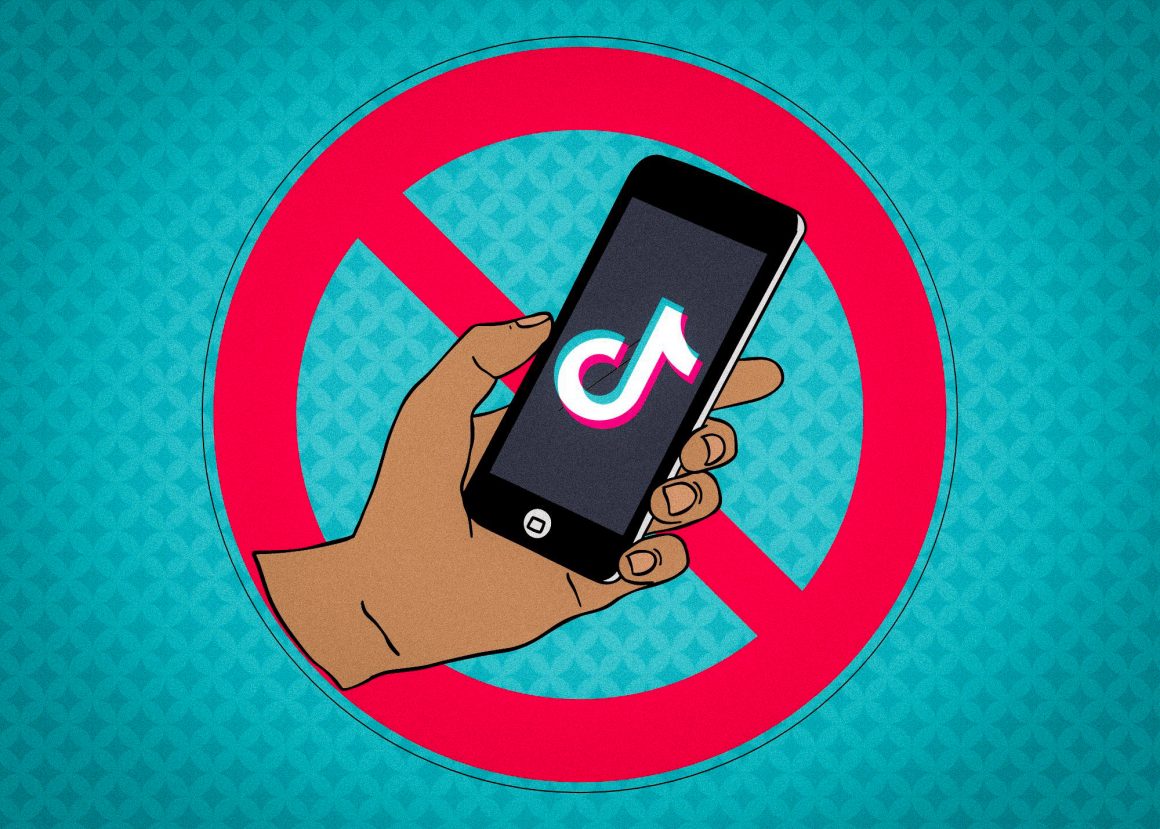
The TikTok ban: What it means for America
By Emma Djukic, April 28 2024—
If you haven’t heard by now, the American Government is once more trying to ban TikTok in the United States. They tried in 2020 during the Donald Trump Administration but were stopped by the Courts, and Joe Biden mandated that the app is not allowed on any Government devices in 2023. The reasoning behind the newest iteration of the bill is that ByteDance, the parent company of TikTok, is a Chinese-owned internet conglomerate. It poses a security risk to America as the Chinese government may demand the information and data of millions of Americans who use the app. The House of Representatives passed the “Protecting Americans from Foreign Adversary Controlled Applications Act” on Mar. 13, and it is now under deliberation in the Senate. Should the Bill pass, ByteDance will be forced to either sell TikTok, so that they no longer have any access to the data it collects, or else the app will be banned from the app store.
Reactions have been mixed. Many groups feel that this is an infringement on their freedom of speech and expression. Small business owners have rallied to the defence of the app as it has been instrumental in their ability to widen their customer base. Influencers who benefit monetarily from making content on the app are also upset with this new legislation. And of course, some simply don’t want the government further meddling in their lives. In a study done by the Pew Research Centre, the percentage of Americans who trust their government in 2023 is %16, which is the lowest in decades. The concern surrounding free speech was one of the largest contributing factors to this staggering number.
Interestingly enough, Meta, the parent company of Instagram and Facebook, collects more data from users than TikTok does. The ongoing power struggle between China and the United States fuels this newest attempt to outmaneuver the other global powers. Despite Shao Zi Chew, the CEO of TikTok, making repeated attempts to reassure American lawmakers, including his testimony during a 2023 Congressional hearing, that the Chinese government lacks legal access to the data collected by the company, considerable suspicion and mistrust continue to surround the company. This is despite his assurance that the data isn’t stored in China.
TikTok does not collect any more data on average than its competitors. It is then the company’s ties to China that make it such a target for American lawmakers, and I doubt that the claims will be strong enough for the courts to approve. The grounds on which the government claims that the app is dangerous, while perhaps reasonable, are also pure extrapolation. The decision by the courts in 2020 to strike down the prior attempt at the bill came from the fact that the national-wide security threat was “phrased in the hypothetical” and would “exceed the bounds of the law”. America does not want China to have access to its data, but there is also no proof that the Chinese government has accessed or attempted to access or use the data collected by TikTok. This may be debatable, but a lack of concrete proof prevents legal action.
Another consideration is the backlash from the American public. If the threat to security was genuine enough to be a concern, then the argument that banning TikTok infringes on free speech is undercut by the responsibility of the government to protect the people. There are other platforms similar to TikTok on which people can create and share the same content to fill the void that would be created, and so speech would not truly be limited. However, the threat is currently nothing more than American paranoia against their Chinese counterparts, and that causes animosity between Americans and their government. After all, reelection is the main concern of any real politician, so it will be interesting to watch the rest of this play out in a Democrat government with elections coming up.
There is also concern about what China’s reaction to such a bill passing would be. The Asian power has already come forward and said that regardless of whether America completes this legislation or not, the pursuit against TikTok is an “act of bullying”, undermining investors’ trust in Chinese companies, as this continued mistrust “corrupts the normal operation of the market.” It is unclear what further action China might take, but overall the Chinese government is not happy with this newest development.
I truly think that TikTok is one of the worst things to ever happen to humanity. The effects on personal well-being and its far-reaching influence over culturally and politically significant events are dangerous and bring harm to many, especially vulnerable youth. However, I also think that to live in a free and democratic society, those who lead our society must play by the rules. And unfortunately, China has broken no rules. Not officially, at least. Now please excuse me while I go watch some TikToks; I’ve got procrastinating to do.
This article is a part of our Opinions section and does not necessarily reflect the views of the Gauntlet editorial board.
